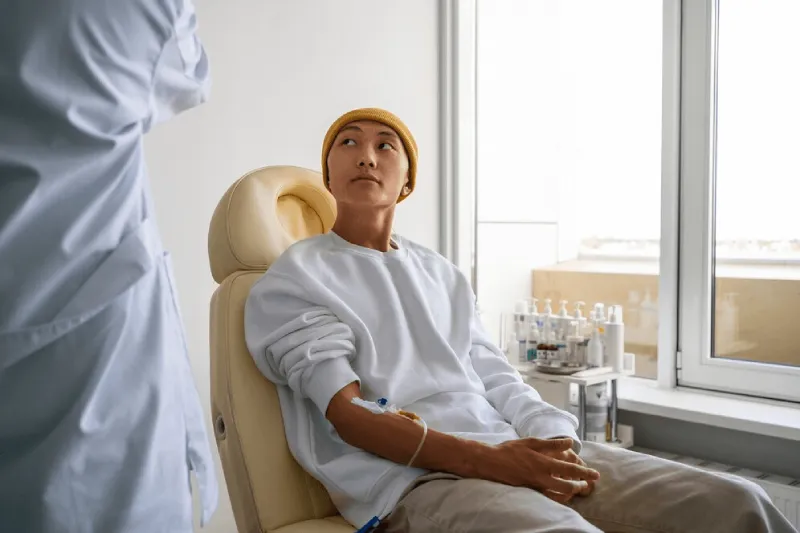Ketamine Miami clinics have been gaining attention in recent years for their innovative approach to mental health treatment. However, with this attention comes a plethora of myths and misconceptions surrounding the use of ketamine for therapy. In this blog, we’ll tackle the truths behind the ten most common myths about ketamine Miami clinics, separating fact from fiction.
Should You Visit Ketamine Miami Clinics?
Before exploring the myths and realities, it’s essential to consider whether visiting ketamine Miami clinics is a viable option for you. Ketamine infusion therapy has shown promising outcomes in managing a range of mental health conditions like depression, anxiety, PTSD, and chronic pain. Nevertheless, it’s crucial to consult with a qualified healthcare professional to assess if ketamine therapy aligns with your specific needs.
10 Ketamine Miami Myths vs. Realities
Ketamine Miami clinics have garnered significant attention for their role in mental health treatment, but along with this attention, several myths have emerged. Let’s debunk these myths and uncover the realities behind ketamine therapy:
1. Ketamine therapy is only for severe cases.
While ketamine can be effective for severe cases, it’s also beneficial for individuals with treatment-resistant depression or those seeking an alternative to traditional antidepressants. Ketamine’s rapid antidepressant effects can provide relief for individuals who have not responded to other treatments.
2. Ketamine Miami clinics are only for the wealthy.
Many ketamine Miami clinics offer affordable treatment options, and some may accept insurance or offer financing plans to make ketamine therapy more accessible. Moreover, some clinics offer sliding scale fees or discounts for veterans, students, or individuals with financial needs.
3. Ketamine is addictive.
Ketamine carries a minimal risk of addiction when used under medical supervision in a clinical setting. Patients are closely monitored to prevent misuse or dependency. Unlike drugs such as opioids, ketamine does not produce physical dependence, making it a safer option for long-term use.
4. Ketamine therapy is a one-time cure.
Ketamine infusion therapy usually involves multiple sessions spread over weeks or months to achieve and maintain optimal results. The frequency and duration of treatment may fluctuate based on individual response and the severity of symptoms. Maintenance sessions may be necessary to sustain the therapeutic effects.
5. Ketamine therapy is unsafe.
When administered by trained medical personnel in a controlled environment, ketamine is a safe and well-tolerated treatment option for many individuals. Ketamine infusion therapy is FDA-approved and has been used safely for decades as an anesthetic in medical settings.
6. Ketamine therapy is only for mental health conditions.
Ketamine has also shown promise in treating chronic pain conditions like fibromyalgia, neuropathic pain, and migraines. Ketamine’s analgesic properties can provide relief for individuals suffering from persistent pain that has not responded to conventional treatments.
7. Ketamine is a horse tranquilizer.
While ketamine is indeed used as an anesthetic in veterinary medicine, it is also utilized for human patients. When administered in controlled doses by qualified medical professionals, ketamine infusion therapy is a safe and effective treatment for diverse mental health conditions and chronic pain disorders.
8. Ketamine is only used as a party or recreational drug.
Although ketamine has been abused recreationally due to its dissociative effects, ketamine infusion therapy in clinical settings is entirely different. Medical-grade ketamine is administered in precise doses under supervision, with a focus on therapeutic benefits rather than recreational use. Ketamine therapy is a legitimate treatment option for individuals grappling with mental health conditions and chronic pain.
9. You can’t do ketamine therapy while on medications.
It’s essential to discuss any current medications with your healthcare provider before starting ketamine therapy; many individuals can safely undergo treatment while taking other prescribed medications. Your healthcare provider will review your medical background and current medications to ensure compatibility with ketamine therapy. In some cases, adjustments to medication doses or schedules may be necessary to optimize treatment outcomes.
10. Ketamine therapy results are short-lived.
While individual responses may vary, many patients experience significant and long-lasting relief from symptoms following ketamine treatment. Ketamine’s antidepressant effects can persist for weeks to months after the completion of a treatment series, with some individuals experiencing sustained remission of symptoms.
Frequently Asked Questions

Are there any contraindications for ketamine therapy?
Ketamine therapy might not be appropriate for individuals with certain medical conditions, like uncontrolled hypertension, severe liver or kidney disease, or a history of psychosis. It’s important to talk about any pre-existing conditions with your healthcare provider before starting treatment.
Can ketamine therapy be combined with other treatments?
Yes, ketamine therapy can be integrated with other therapeutic approaches, such as psychotherapy, medication management, and lifestyle modifications, to provide comprehensive care. Your healthcare provider will craft a customized treatment strategy designed specifically to address your individual needs and goals.
Can ketamine therapy be used for children or adolescents?
Ketamine therapy may be considered for children or adolescents under the supervision of a qualified healthcare provider. However, treatment decisions should be made on a case-by-case basis, considering factors like age, medical history, and treatment response.
How long does a ketamine infusion session last?
Ketamine infusion sessions typically last between 40 minutes to an hour, depending on the dosage and individual response. Patients are closely monitored during and after the infusion to ensure safety and comfort.
Can I drive myself home after a ketamine infusion session?
It’s not advisable. Due to the possibility of mild impairment or drowsiness following a ketamine Miami infusion session, it’s recommended to organize transportation home following the appointment. Avoid driving or operating heavy machinery until any lasting effects of the treatment have completely vanished.
Conclusion
Ketamine Miami clinics offer a valuable treatment option for those dealing with mental health conditions and chronic pain. By addressing common myths and misunderstandings, we can gain deeper insights into the potential advantages of ketamine therapy. If you’re considering ketamine treatment, consult with a competent healthcare provider to explore your options and determine the best course of action for your unique needs.
For those seeking ketamine therapy in the Miami area, Sunshine Infusion offers professional and compassionate care. Contact us today for more information and to schedule an appointment.




